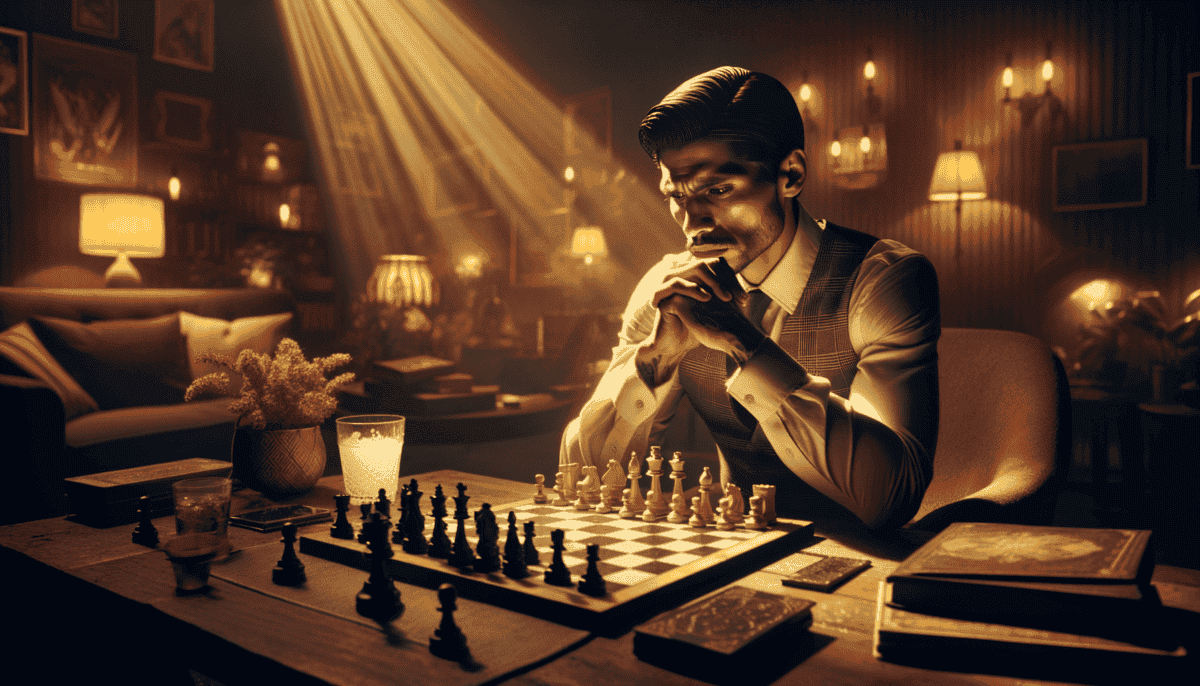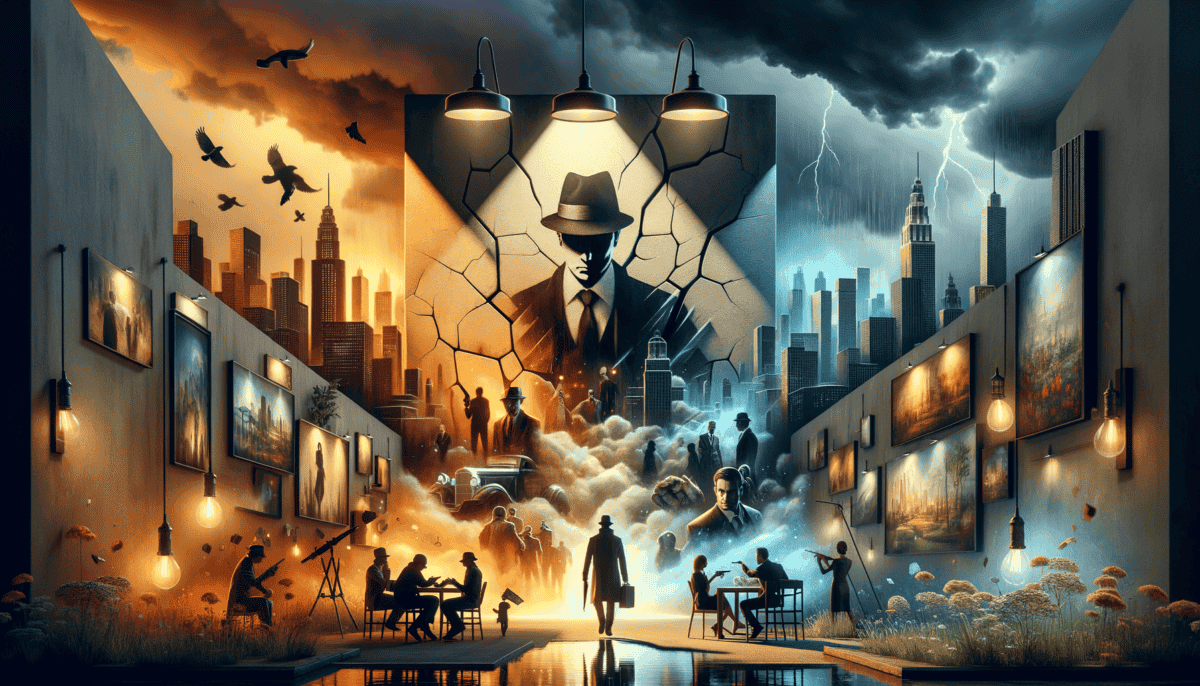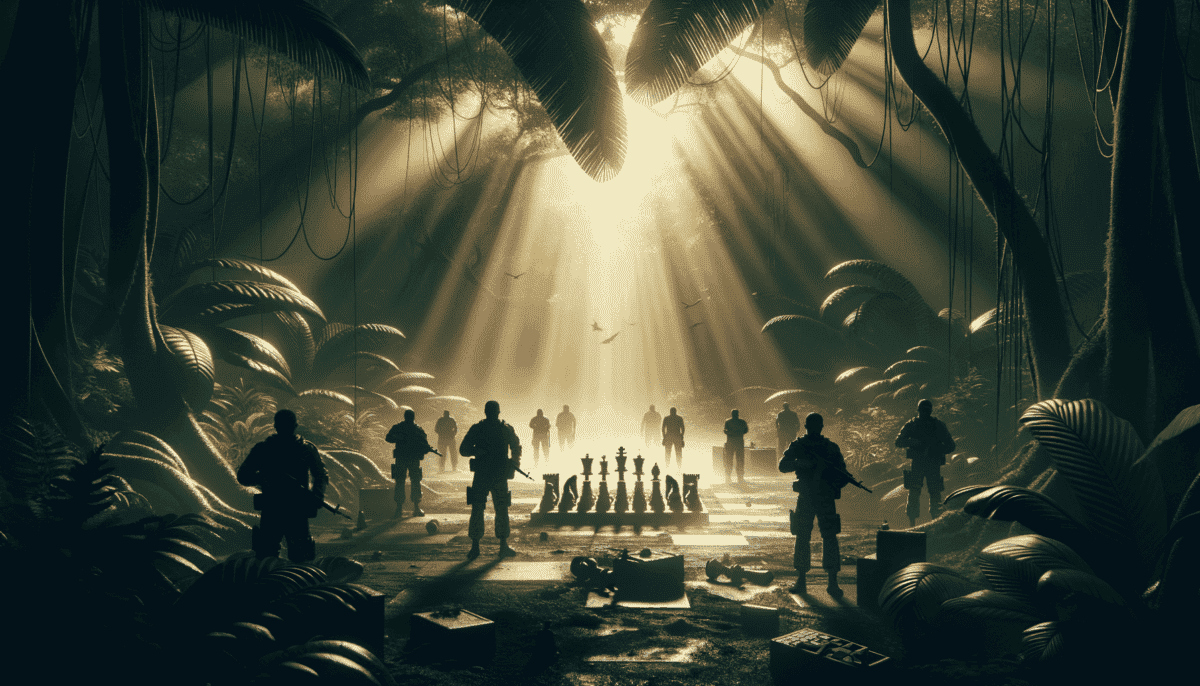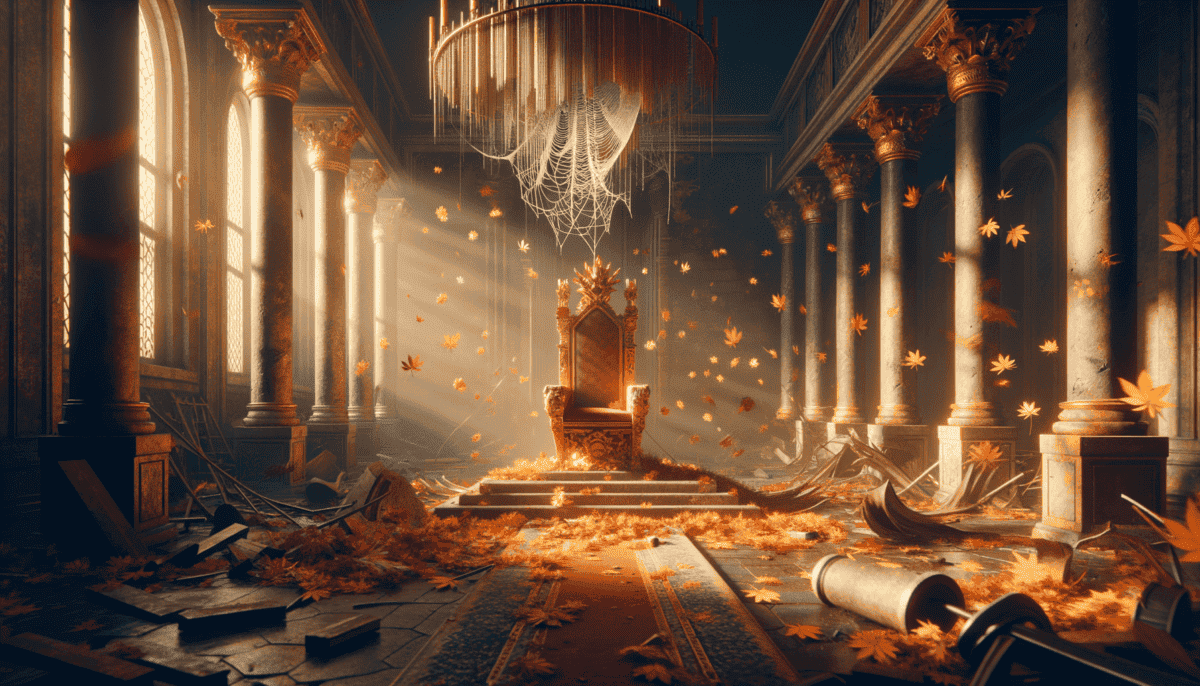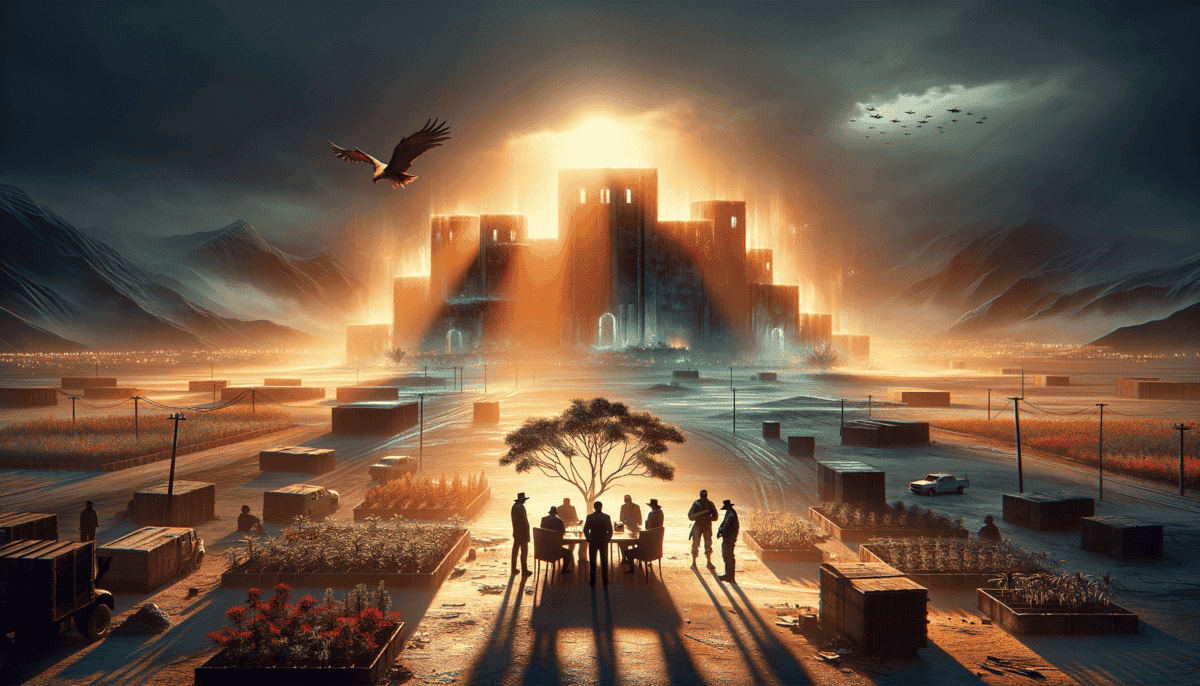The Rise of a Dream
Pablo walked down the dusty streets of Rionegro, his worn shoes kicking up small clouds with each step. The year was 1968, and at 19 years old, he already had big dreams. Much bigger than his small Colombian town could hold.
"Mama, one day I'll build you a palace," he would often say to his mother, who worked long hours as a schoolteacher. She would smile and pat his cheek, not knowing her son's path would change their lives forever.
His cousin Gustavo was always by his side. They started small – stealing cars and selling fake lottery tickets. It wasn't much, but it was more money than they'd ever seen before.
"Look at this, Pablo!" Gustavo exclaimed one day, holding up a stack of bills. "We made more in a week than our parents make in a month!"
But Pablo wanted even more. He had heard whispers about a new business – cocaine. It was white like sugar but worth more than gold. His eyes lit up when he learned how much money people would pay for it.
First Steps into Power
Pablo started meeting new people. Bad people, his mother would have said. But they had nice cars and expensive watches. They taught him about the cocaine business.
"You're smart, kid," one of them said. "You think bigger than the others."
And he did think big. Pablo didn't want to be just another dealer. He wanted to be the boss. He started building his team:
• Drivers who could move drugs fast
• Friends who knew how to keep secrets
• People who could help him cross borders
He bought his first plane when he was 21. It wasn't much – just a small thing that could carry packages to other countries. But it was just the beginning.
"See this plane?" he told Gustavo. "Soon we'll have hundreds. We'll build something no one has ever seen before."
His mother noticed the changes. The new clothes. The thick gold chain around his neck. The way people in the neighborhood started treating him differently.
"Mi hijo," she would say, worry in her eyes. "Where is this money coming from?"
"Don't worry, Mama," he would answer. "I'm just good at business."
“Money is power,” Pablo would say. “And with enough power, we can change everything.”
By 1970, Pablo wasn't just dreaming anymore. He was building something big. Something dangerous. The poor kid from Rionegro was becoming someone new. Someone powerful.
He looked at himself in the mirror one morning, straightening his expensive new shirt. The skinny boy who used to kick rocks down dusty streets was gone. In his place stood a man with cold eyes and big plans.
"This is just the start," he whispered to his reflection. "Just the start."
Little did anyone know, that morning marked the beginning of a story that would change Colombia forever. Pablo Escobar was about to become more than just a name. He was about to become a legend.
The sun set over Rionegro that evening, painting the sky blood red. It was as if even nature knew what was coming. The quiet streets had no idea they had given birth to someone who would shake the world.
Pablo stood on his new balcony, watching the sunset. His mind was already racing with plans. Tomorrow would bring new challenges, new opportunities, and new ways to grow his power. The dream was just beginning.
Building the Cocaine Kingdom
The streets of Medellín hummed with energy as Pablo’s empire grew. It was 1975, and his small operation had grown into something much bigger.
“Look at what we’ve built,” Pablo said to Gustavo one morning, standing on the balcony of their new office building. Below them, dozens of cars came and went, each carrying money or drugs.
The King’s New Court
Pablo knew he needed smart people to help run his business. He picked his team carefully:
• Jorge (The Money Man) – kept track of all the money
• Carlos (The Pilot) – flew the planes full of drugs ✈️
• Maria (The Secretary) – knew all the secrets
• Roberto (The Guard) – kept everyone safe
• Luis (The Lawyer) – handled the police ⚖️
“We’re like a big family now,” Pablo would tell them. But this wasn’t a normal family. This was the Medellín Cartel.
“To be successful, you need loyal friends and lots of money to make problems go away.” – Pablo’s golden rule
The Robin Hood of Colombia
Pablo did something clever. He shared his money with poor people in Medellín. He built houses for families who had nothing. He gave food to hungry children.
“See how they smile when we help them?” Pablo told Gustavo. “When people love you, they protect you.”
New Ways to Move Drugs
Pablo thought of clever ways to hide cocaine. He put it in airplane tires. He hid it in coffee bags. He even built secret tunnels under the ground.
“Every day, we need a new trick,” he told his team. “The police are always watching.”
Making Friends in High Places
Pablo knew he needed friends who could help protect his business. He started giving money to police officers, judges, and even people who made laws.
“Everyone has a price,” he would say with a smile. “You just have to find out what it is.”
He even got elected as a backup congressman! Now he could walk into government buildings without anyone stopping him.
The Price of Power
But all this power came with problems. Other drug bosses were jealous. The police who wouldn’t take his money wanted to catch him.
“Being on top means everyone below wants to knock you down,” Gustavo warned.
Pablo just laughed. “Let them try. We’re too big to fall now.”
By 1980, Pablo’s business was huge. He had planes, boats, and trucks moving drugs all over the world. He had more money than he could spend.
But with all this success, dark clouds were gathering. The American government was starting to notice. Some Colombian police officers couldn’t be bought.
Pablo stood in his favorite spot on the balcony, looking out over his city. He didn’t know it yet, but the biggest fights of his life were just beginning.
As night fell over Medellín, the lights in Pablo’s office stayed on. There was always more work to do, more empire to build, more power to grab. The cocaine kingdom was growing, but so were its enemies.
Blood in the Streets
The year was 1984, and the peaceful days were over. Pablo’s empire was under attack from all sides.
“They want to destroy everything we built,” Pablo said to Gustavo, watching smoke rise from another bombing downtown.
The Big Fight Begins
The trouble started when some people said “no” to Pablo:
• Police Chief Martinez refused Pablo's money ♂️
• Judge Rodriguez tried to put Pablo in jail ⚖️
• Minister Torres wanted to stop Pablo's planes ✈️
• The Cali Cartel tried to take Pablo's business
• The DEA agents came from America to catch Pablo
“If they want war, we’ll give them war.” – Pablo’s new rule
A City in Fear
Pablo’s men put bombs in cars. They shot at police officers. The nice Pablo who helped poor people was gone. Now he was scary Pablo who hurt people.
“Why are you doing this?” Maria asked Pablo one day.
“Because fear is stronger than love,” Pablo answered.
The Police Fight Back
The police weren’t giving up. They had help from America now. Special agents came with fancy computers and spy tools.
Friends Turn Into Enemies
Some of Pablo’s friends got scared and left him. Others started working with the police.
“We can’t trust anyone anymore,” Gustavo told Pablo. “Even our friends might be wearing spy microphones.”
Pablo had to move his family to different houses every night to stay safe.
The High Cost
Pablo’s war hurt many people. Bombs went off in shopping places. Good police officers died. Regular people got caught in the middle.
One day, a big bomb went off near a school. Even Pablo’s men were shocked.
“This is too much,” Jorge said. “We’re hurting innocent people.”
But Pablo wouldn’t listen. He was too angry and scared to stop.
No Way Back
The government made new laws to catch drug bosses. They said they would send them to American jails.
“I’d rather die in Colombia than go to jail in America,” Pablo told his men.
By 1989, things were getting worse. Pablo couldn’t walk freely in his city anymore. He had to hide all the time.
More police came. More agents came. More enemies appeared. The war was getting bigger.
In his secret hideout, Pablo looked at old pictures from better days. His empire was strong, but the price was high. The blood in the streets wouldn’t wash away easily.
The Chase Begins
The streets of Medellín buzzed with police sirens in 1989. Special teams were coming to catch Pablo.
The Special Team
Colonel Hugo Martinez led the Search Bloc. He was brave and smart.
“We will find him,” Martinez told his team. “Even if we have to look under every rock in Colombia.”
The team had cool tools:
• Special phones to track Pablo’s calls
• Night vision goggles to see in the dark
• Fast helicopters to chase him
• Dogs trained to smell his clothes
• Computers to follow his money
Hide and Seek
Pablo was good at hiding. He moved around a lot:
“They’ll never catch me,” Pablo told his family. “I know these streets better than anyone.”
The Phone Game
The police got smart. They learned Pablo liked to call his family.
“Every time he calls home, we get closer,” Agent Murphy smiled. “He can’t stay quiet forever.”
Pablo used special phones that were hard to track. But he had to talk fast.
“I miss you too, mi amor. But I can’t talk long.” Pablo always had to hang up quickly.
Close Calls
Sometimes the police almost caught Pablo:
One time, they found his hiding place just ten minutes after he left. His coffee was still warm! ☕
Another time, they saw him running through a farm, but he disappeared into the forest.
Help from Friends
The police made friends with people who knew Pablo:
“Tell us where he goes,” the police said. “We’ll protect you.”
Many people in Medellín still helped Pablo hide. They remembered how he built houses for poor families.
Getting Closer
The Search Bloc got better at their job. They found more of Pablo’s houses and caught more of his friends.
“They’re closing in,” Gustavo warned. “We need new hiding spots.”
Pablo looked tired now. Running away all the time was hard work.
The Big Net
More help came from other countries. The Americans sent special planes to look for Pablo from the sky. ️
The police put up wanted posters everywhere. They offered money to anyone who could help find Pablo.
At night, Colonel Martinez looked at his map of Medellín. He put red pins where they almost caught Pablo.
“Soon,” he said to himself. “Soon we’ll put the last pin on this map.”
The chase was getting more intense. Pablo was still free, but for how long? The hunters were getting closer every day.
The Final Days
The walls were closing in on Pablo. By 1993, his world had become very small. ♂️
A Lonely King
Pablo wasn’t the big boss anymore. His money was running out. He couldn’t buy nice things or help poor people like before.
“Remember when we could go anywhere?” his friend asked.
“Those days are gone,” Pablo said softly. He looked out the window of his tiny hiding place.
Breaking Apart
His phone calls home got shorter:
“Yes, mi hijo. Stay strong. I have to go now.”
The Big Mistake
Pablo missed his family so much. He kept calling them even though it was dangerous.
“Every call is like a light showing us where he is,” Colonel Martinez told his team. “Keep listening!”
The police got better at following these calls. Their special machines could find where Pablo was calling from.
The Last Hide-Out
Pablo moved into a simple house in Los Olivos, a quiet neighborhood. He thought he was safe there.
The Final Call
On December 2, 1993, Pablo made a big mistake. He stayed on the phone too long with his son.
The Last Stand
The Search Bloc surrounded the house. Pablo tried to run across the rooftops like he used to.
But this time was different. He couldn’t escape.
After a short fight, Pablo Escobar fell. The king of cocaine was gone.
After the Chase
People gathered in the streets of Medellín. Some were happy. Some were sad.
But bigger questions remained:
• What would happen to Colombia now?
• Would the drug problems stop?
• How would people remember Pablo Escobar?
The city of Medellín could finally breathe again. But the story wasn’t over yet. New changes were coming to Colombia.
The World After Pablo
The sunshine felt different in Medellín that December morning. People walked taller, smiled more.
A City Heals
Children played freely in parks again. No more bombs, no more scary news on TV. Medellín was becoming a happy place.
Changes Big and Small
Colonel Martinez sat in his office, looking at old photos. His phone rang less now.
“Remember when we couldn’t sleep for days?” his partner smiled. “Now we can have dinner with our families again.”
New Challenges
But not everything was perfect. Other bad people tried to sell drugs too. They weren’t as big as Pablo, but they caused trouble.
Growing Hope
Medellín changed in amazing ways:
• New schools and libraries opened
• Pretty parks replaced old hideouts
• Kids played soccer where drug lords once lived
• People started new businesses
Lessons Learned
A Better Future
Young people in Colombia dreamed big dreams now. They wanted to be:
Artists who paint beautiful things
Teachers who share knowledge
Business owners who create jobs
Moving Forward
The old Pablo houses became museums. People visited to learn from the past. ️
“We must remember what happened,” a tour guide explained, “so we never let it happen again.”
Today’s Colombia
Now Colombia is known for good things:
Tasty coffee ☕
Kind people ❤️
Amazing music
The Story Lives On
People still talk about Pablo Escobar. But now they tell a different story – about how Colombia grew stronger after hard times.
And so, Colombia keeps growing, learning, and showing the world its true colors – not the dark shadows of the past, but the bright light of hope.


